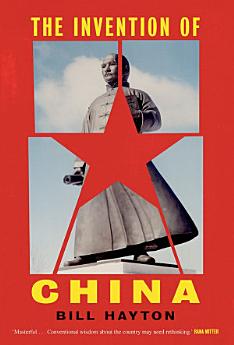The Invention of China
অক্টো ২০২০ · Yale University Press
ইবুক
320
পৃষ্ঠা
family_home
যোগ্য
info
reportমূল্যাংকন আৰু পৰ্যালোচনা সত্যাপন কৰা হোৱা নাই অধিক জানক
এই ইবুকখনৰ বিষয়ে
A provocative account showing that “China”—and its 5,000 years of unified history—is a national myth, created only a century ago with a political agenda that persists to this day
China’s current leadership lays claim to a 5,000-year-old civilization, but “China” as a unified country and people, Bill Hayton argues, was created far more recently by a small group of intellectuals.
In this compelling account, Hayton shows how China’s present-day geopolitical problems—the fates of Hong Kong, Taiwan, Tibet, Xinjiang, and the South China Sea—were born in the struggle to create a modern nation-state. In the late nineteenth and early twentieth centuries, reformers and revolutionaries adopted foreign ideas to “invent’ a new vision of China. By asserting a particular, politicized version of the past the government bolstered its claim to a vast territory stretching from the Pacific to Central Asia. Ranging across history, nationhood, language, and territory, Hayton shows how the Republic’s reworking of its past not only helped it to justify its right to rule a century ago—but continues to motivate and direct policy today.
China’s current leadership lays claim to a 5,000-year-old civilization, but “China” as a unified country and people, Bill Hayton argues, was created far more recently by a small group of intellectuals.
In this compelling account, Hayton shows how China’s present-day geopolitical problems—the fates of Hong Kong, Taiwan, Tibet, Xinjiang, and the South China Sea—were born in the struggle to create a modern nation-state. In the late nineteenth and early twentieth centuries, reformers and revolutionaries adopted foreign ideas to “invent’ a new vision of China. By asserting a particular, politicized version of the past the government bolstered its claim to a vast territory stretching from the Pacific to Central Asia. Ranging across history, nationhood, language, and territory, Hayton shows how the Republic’s reworking of its past not only helped it to justify its right to rule a century ago—but continues to motivate and direct policy today.
লিখকৰ বিষয়ে
Bill Hayton is an associate fellow with the Asia-Pacific Programme at Chatham House and a journalist with BBC World News. He is the author of The South China Sea and Vietnam. He lives in Colchester, England.
এই ইবুকখনক মূল্যাংকন কৰক
আমাক আপোনাৰ মতামত জনাওক।
পঢ়াৰ নির্দেশাৱলী
স্মাৰ্টফ’ন আৰু টেবলেট
Android আৰু iPad/iPhoneৰ বাবে Google Play Books এপটো ইনষ্টল কৰক। ই স্বয়ংক্রিয়ভাৱে আপোনাৰ একাউণ্টৰ সৈতে ছিংক হয় আৰু আপুনি য'তে নাথাকক ত'তেই কোনো অডিঅ'বুক অনলাইন বা অফলাইনত শুনিবলৈ সুবিধা দিয়ে।
লেপটপ আৰু কম্পিউটাৰ
আপুনি কম্পিউটাৰৰ ৱেব ব্রাউজাৰ ব্যৱহাৰ কৰি Google Playত কিনা অডিঅ'বুকসমূহ শুনিব পাৰে।
ই-ৰীডাৰ আৰু অন্য ডিভাইচ
Kobo eReadersৰ দৰে ই-চিয়াঁহীৰ ডিভাইচসমূহত পঢ়িবলৈ, আপুনি এটা ফাইল ডাউনল’ড কৰি সেইটো আপোনাৰ ডিভাইচলৈ স্থানান্তৰণ কৰিব লাগিব। সমৰ্থিত ই-ৰিডাৰলৈ ফাইলটো কেনেকৈ স্থানান্তৰ কৰিব জানিবলৈ সহায় কেন্দ্ৰত থকা সবিশেষ নিৰ্দেশাৱলী চাওক।




